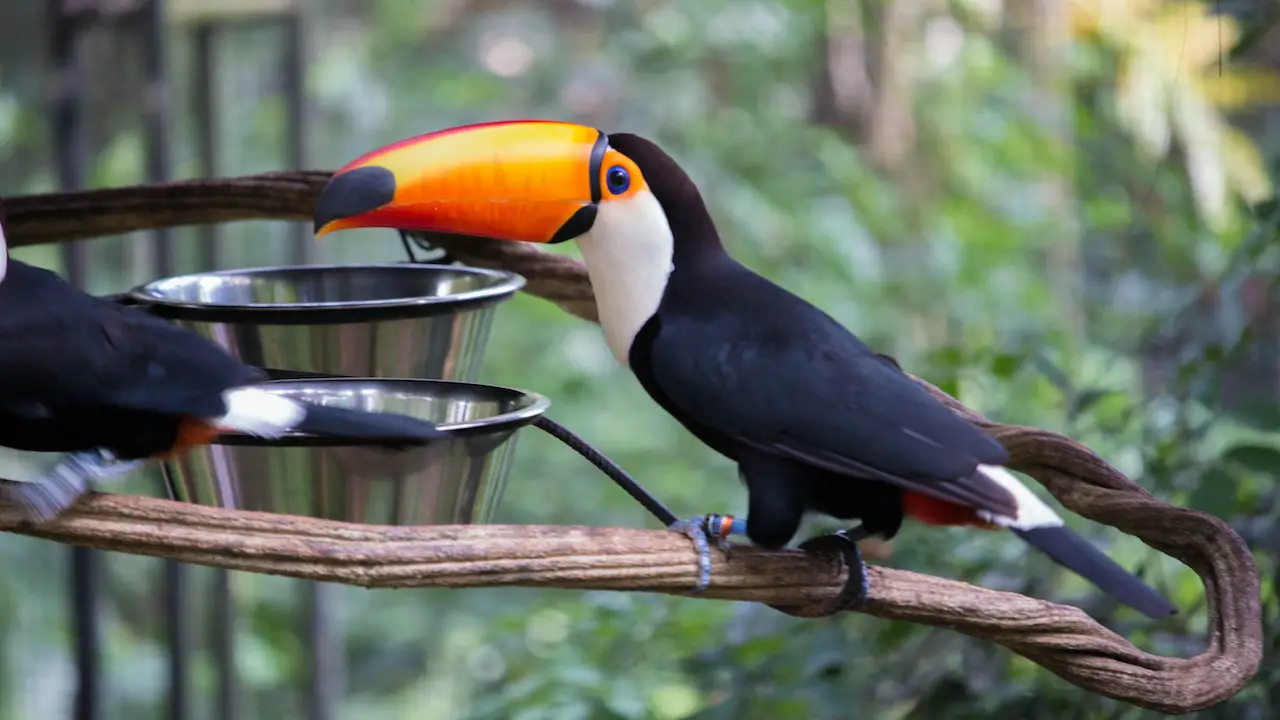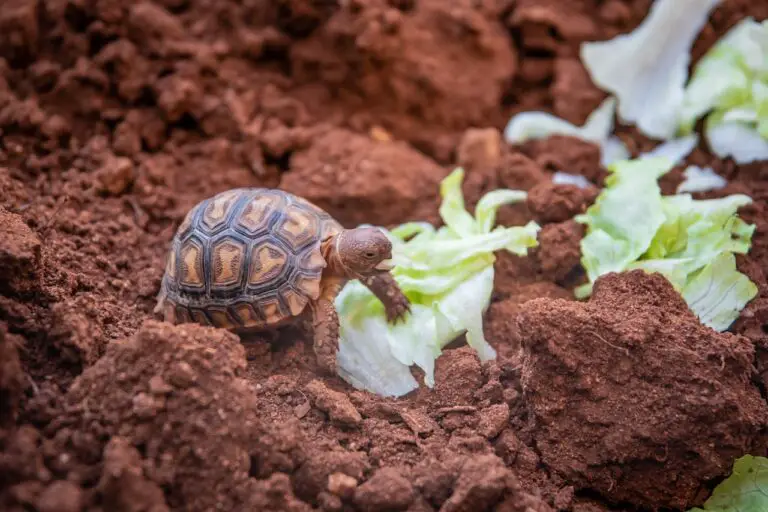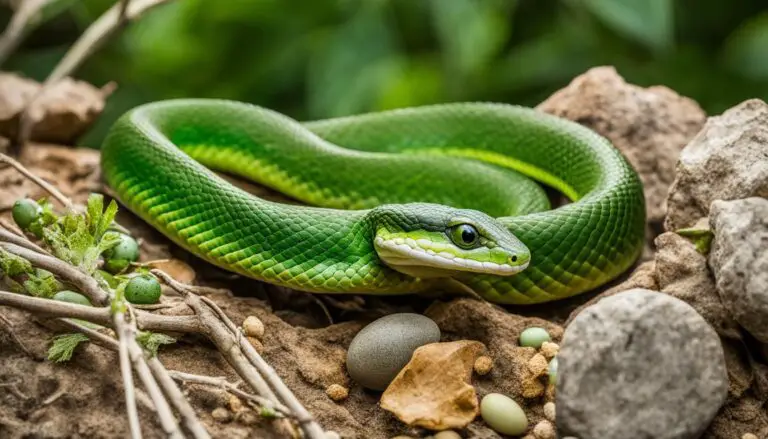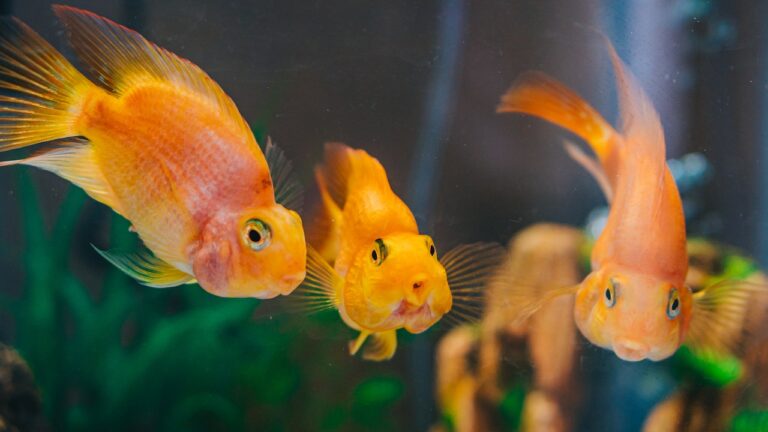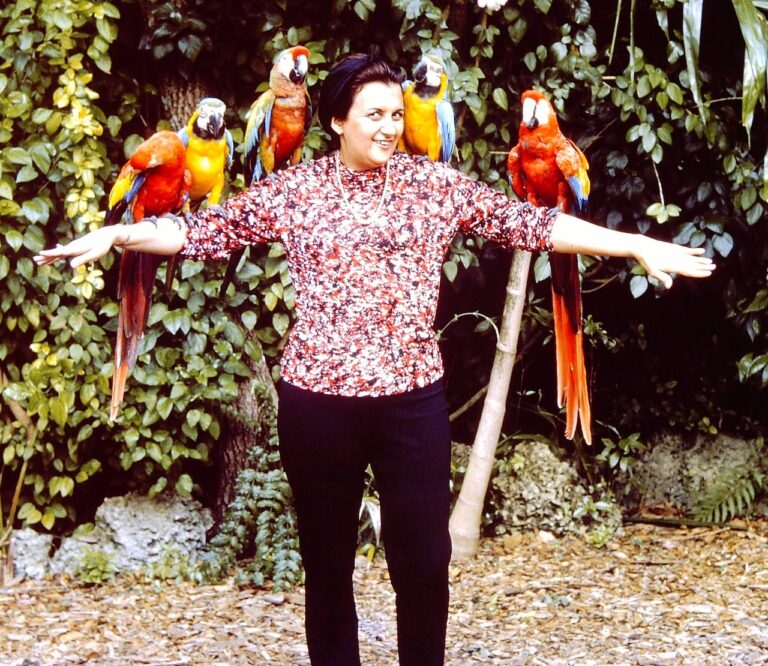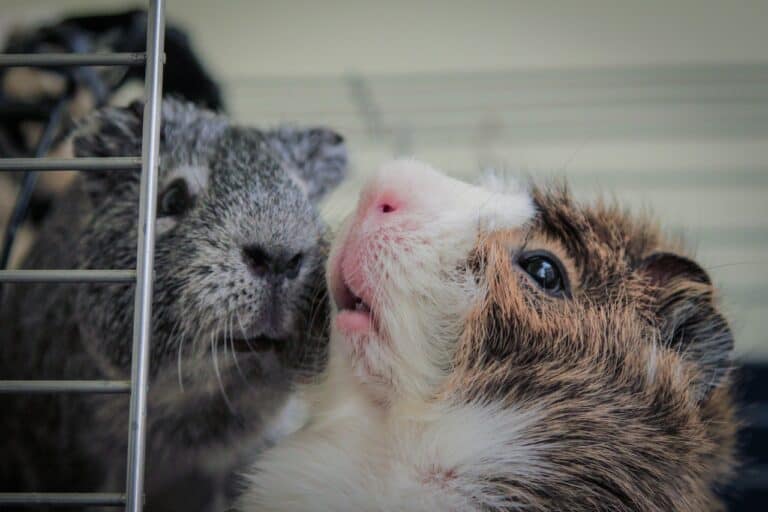Proper Exotic Bird Care: Vital Tips and Nutrition Guide
Owning an exotic bird can be a rewarding and delightful experience. These vibrant and intelligent creatures can make fantastic companions, but they also require special care and attention to thrive in captivity.
In this comprehensive guide, we will explore the essential aspects of proper exotic bird care, including tips on nutrition, housing, and overall well-being.
Key Takeaways:
- Exotic birds require socialization and interaction for their mental and emotional well-being.
- Not all birds can talk, and each bird is unique in its abilities and personality.
- A balanced diet of pellets, fresh fruits, vegetables, and suitable protein sources is essential for bird health.
- Birds can get sick, so regular vet check-ups are crucial for early detection and treatment.
- Proper care involves a daily routine, mental stimulation through toys, and socialization.
- Exotic birds are not low-maintenance pets; they require significant care and attention.
- Mental stimulation through toys is vital to prevent boredom and behavioral issues.
- Birds need a consistent daily routine to feel secure and reduce stress.
- Each bird species is unique, with specific care requirements.
- Be prepared for emergencies with a first-aid kit, contact information for avian veterinarians, and knowledge of common bird emergencies.
Understanding the Exotic Bird Species
Different Types of Exotic Birds
Exotic birds come in a wide variety of species, each with its unique characteristics and care requirements. Some popular exotic bird species include:
Parrots: Known for their intelligence and talking abilities, parrots require ample social interaction and mental stimulation. African Grey Parrots, for example, are famous for their exceptional vocabulary and problem-solving abilities.
Macaws: With their striking plumage, macaws need a spacious habitat due to their large size. Scarlet Macaws, for instance, are known for their vivid red feathers and are one of the most colorful parrot species.
Cockatiels: Smaller in size, cockatiels are known for their friendly nature and can be an excellent choice for beginners. These birds often form strong bonds with their owners and are relatively low-maintenance.
Lovebirds: As their name suggests, lovebirds thrive on companionship and are known for forming strong bonds with their owners. Peach-faced Lovebirds, with their vibrant colors and affectionate nature, are a popular choice.
Toucans: Toucans, with their distinctive beaks, have unique dietary needs that include a variety of fruits. The Toco Toucan is one of the largest and most recognizable toucan species.
Before bringing home an exotic bird, it’s crucial to research and understand the specific needs of the species you’re interested in. Different species may have varying dietary requirements, lifespans, and temperaments.
Choosing the Right Bird for You
When selecting an exotic bird as a pet, consider factors like:
- Size: Larger birds like macaws may require more space and attention than smaller species like budgerigars. Ensure you have the appropriate space and resources for the bird you choose.
- Lifespan: Exotic birds can live for decades, so be prepared for a long-term commitment. Some species, like the Cockatiel, have lifespans of 15 to 20 years, while others, like the Macaw, can live for 50 years or more.
- Temperament: Temperament varies among species. Some birds are more vocal, while others are quieter. Research the specific species to ensure it aligns with your personality and living situation.
- Noise Level: Noise level can be a concern, especially if you live in an apartment or have close neighbors. While some species are quieter, others, like the Sun Conure, are known for their loud calls.
Make sure the bird’s personality aligns with your lifestyle and preferences to ensure a harmonious and happy relationship.
Creating the Ideal Habitat
Cage Selection and Setup
Your exotic bird’s cage should provide ample space for movement and exercise. Consider the following factors when selecting and setting up the cage:
- Size: Choose a cage size that allows your bird to spread its wings fully and move around comfortably. Larger birds require more extensive cages. For instance, a Macaw needs a cage that is at least 2 feet by 3 feet by 4 feet.
- Bar Spacing: Ensure that the cage bars are spaced appropriately to prevent escape or injury. Smaller birds may require closer bar spacing to prevent them from getting stuck.
- Perches: Inside the cage, provide perches of various sizes and textures to promote foot health. Natural wooden perches are excellent choices, as they mimic the texture of branches in the wild.
For smaller birds, such as budgerigars, a spacious cage with horizontal bars is ideal. Larger birds like macaws will need a more substantial enclosure to accommodate their size and provide room for wing-stretching.
Temperature and Lighting Requirements
Maintaining the right temperature and lighting conditions is crucial for your bird’s well-being:
- Temperature: Exotic birds often thrive in temperatures between 70°F and 80°F (21°C to 27°C). Keep your bird’s environment within this range and avoid drafts.
- Lighting: Provide natural light or full-spectrum lighting to mimic the sun’s rays. This aids in vitamin D production and overall health. Ensure your bird receives 10 to 12 hours of light per day, as this mimics their natural daylight hours.
Consider placing your bird’s cage near a window with indirect sunlight to provide them with exposure to natural light. Be cautious not to expose them to direct sunlight for extended periods, as it can lead to overheating.
Toys and Enrichment Activities
Exotic birds are highly intelligent and need mental stimulation to prevent boredom and behavioral issues. Provide a variety of toys and enrichment activities:
- Toys: Rotate toys regularly to maintain your bird’s interest. Toys like puzzle feeders, swinging perches, and foraging puzzles can keep your bird engaged and happy.
- Foraging: Encourage natural foraging behavior by hiding treats or food inside toys or foraging trays. This stimulates your bird’s problem-solving skills and keeps them mentally active.
- Puzzles: Offer puzzles designed for birds to challenge their minds. These can include tasks like unlocking compartments to access treats.
Remember that some birds may have specific preferences for certain types of toys, so it’s essential to observe your bird’s behavior and adapt their environment accordingly.
Nutrition for Exotic Birds
Balanced Diet Essentials
A balanced diet is crucial for the health of your exotic bird. Consider the following dietary essentials:
- Pellets: High-quality pellets specifically formulated for your bird’s species should make up the primary portion of their diet. Consult with an avian veterinarian or experienced breeder to determine the best pellet formula for your bird. Pellets are nutritionally complete and ensure that your bird receives all necessary vitamins and minerals.
- Fresh Fruits and Vegetables: In addition to pellets, offer a variety of fresh fruits and vegetables daily. This provides additional nutrients and keeps your bird’s diet interesting. Some suitable options include apples, leafy greens, carrots, and berries.
- Protein: Depending on the species, some birds may benefit from additional sources of protein, such as cooked eggs, legumes, or lean meats. Consult with an avian expert to determine the appropriate protein sources for your bird.
Avoid seed-based diets, as they lack essential nutrients and can lead to health problems such as obesity and nutritional deficiencies.
Fresh Fruits and Vegetables
When introducing fresh fruits and vegetables into your bird’s diet:
- Variety: Offer a wide variety of fruits and vegetables to ensure a balanced diet and prevent boredom. Rotate the options regularly.
- Washing: Ensure that all fruits and vegetables are thoroughly washed and free of pesticides or chemicals.
- Portion Size: Consider the size of your bird when offering fruits and vegetables. Smaller birds require smaller pieces for easier consumption.
Avoiding Harmful Foods
Be cautious about offering foods that are toxic to birds. Some common foods to avoid include:
- Onions and Garlic: These can be harmful and potentially toxic to birds, affecting their red blood cells.
- Chocolate: Chocolate contains theobromine, which is toxic to birds and can lead to various health issues, including seizures and death.
- Caffeine: Avoid giving your bird caffeinated beverages, as caffeine can be deadly for them.
- High-Sugar Foods: Limit sugary treats, as excessive sugar can lead to obesity and other health problems.
Always research food items before offering them to ensure they are safe for your specific bird species.
Hydration and Cleanliness
Importance of Fresh Water
Clean, freshwater should always be available to your exotic bird:
- Water Dish: Provide a clean water dish in your bird’s cage and check it daily. Birds can be particular about water quality, so ensure it’s fresh and free from contaminants.
- Water Sources: Use a water dispenser that prevents contamination by droppings or debris. Ensure that the water is changed daily.
Cage Cleaning Tips
Maintaining a clean cage is crucial for your bird’s health and well-being:
- Daily Cleaning: Remove droppings and food debris from the cage daily. This prevents the buildup of harmful bacteria and keeps your bird’s environment sanitary.
- Weekly Cleaning: Perform a more thorough cleaning of the cage at least once a week. Remove all items, wash them, and disinfect the cage and accessories. Rinse everything thoroughly to ensure no residue remains.
- Avoid Strong Chemicals: When disinfecting the cage, use bird-safe disinfectants recommended by avian veterinarians. Avoid using strong chemicals or bleach, which can be harmful to your bird.
A clean environment is essential for preventing disease and ensuring your bird’s overall well-being.
Bathing for Health
Many exotic birds enjoy bathing, and it is essential for feather maintenance and overall health:
- Bathing Dish: Provide a shallow dish of lukewarm water for your bird to splash around in. Some birds may prefer a bowl or sink filled with water for a larger bathing area.
- Misting: Some birds prefer mist baths. Use a spray bottle to mist them lightly. Ensure that the water is lukewarm and that the bird is comfortable with this method.
- Frequency: Bathing can vary from bird to bird. Some enjoy daily baths, while others prefer less frequent bathing. Observe your bird’s preferences.
Regular bathing helps remove dust and debris from their feathers, prevents dry skin, and keeps them comfortable.
Healthcare and Veterinary Visits
Regular Check-ups
Schedule regular check-ups with an avian veterinarian to monitor your bird’s health:
- Frequency: Follow your veterinarian’s recommendations for check-up intervals. Exotic birds should typically have annual wellness exams.
- Early Detection: Birds can hide illness well, so routine examinations are essential for early detection and treatment of health issues.
- Vaccinations: Depending on the species and location, your veterinarian may recommend specific vaccinations to protect against common diseases.
Signs of Illness
It’s crucial to be vigilant and recognize signs of illness in your bird:
- Changes in Behavior: Look for changes in appetite, behavior, or droppings. Birds that are usually active and vocal may become lethargic and quiet.
- Physical Changes: Observe for changes in feather condition, posture, or breathing patterns. Unusual discharges from the eyes or nostrils may indicate an issue.
- Vocalization: Changes in vocalization or a sudden increase in vocalization may be a sign of discomfort.
If you notice any unusual symptoms, consult your veterinarian immediately. Early intervention can be critical in treating bird illnesses.
Common Health Issues
Exotic birds are susceptible to various health issues:
- Respiratory Infections: Birds can develop respiratory infections due to exposure to drafts or stress. Symptoms may include sneezing, coughing, or nasal discharge.
- Feather Plucking: Feather plucking can result from various factors, including boredom, stress, or underlying health problems. Address the underlying cause to correct this behavior.
- Nutritional Deficiencies: Birds on an improper diet may develop nutritional deficiencies. Common deficiencies include vitamin A, calcium, and iron deficiencies.
Knowledge of common problems can help you provide timely care. A balanced diet and a clean environment are crucial for preventing many health issues.
Social Interaction and Mental Stimulation
The Importance of Socialization
Exotic birds are social animals that thrive on interaction with their human companions:
- Quality Time: Spend quality time with your bird, talking, playing, and bonding. Interact with your bird daily to create a strong and trusting relationship.
- Companionship: Birds are less likely to become stressed or bored when they have a companion. Consider adopting another bird if it’s suitable for your household.
- Daily Routine: Establish a daily routine that includes feeding, playtime, and socialization. Consistency helps birds feel secure.
Intellectual Stimulation
Stimulate your bird’s mind with puzzles, foraging toys, and challenges that encourage problem-solving:
- Rotate Toys: Rotate toys and activities regularly to maintain their interest. This prevents boredom and encourages mental engagement.
- Foraging Opportunities: Create opportunities for your bird to forage for food. Hide treats inside foraging toys or scatter them throughout the cage.
- Puzzle Feeders: Invest in puzzle feeders that require your bird to manipulate objects to access food. This stimulates their problem-solving abilities.
Bonding with Your Bird
Develop a strong bond with your exotic bird through positive interactions and trust-building exercises:
- Positive Reinforcement: Offer treats as rewards for good behavior. Positive reinforcement helps reinforce desired actions and encourages a positive relationship between you and your bird.
- Gentle Handling: Handle your bird gently and with care. Avoid sudden movements or actions that may startle or stress them.
- Calm Communication: Speak to your bird using a calm and gentle tone to create a sense of security. Birds are sensitive to tone and can detect your emotions.
A well-bonded bird is more likely to be happy, trusting, and cooperative.
Training and Behavioral Guidance
Basic Training Commands
Teach your bird basic commands like “step up” and “stay.” Positive reinforcement is a key component of training:
- Training Treats: Use treats as rewards for desired behaviors. Small pieces of fruits or pellets can be effective training treats.
- Consistency: Be consistent in your training efforts. Practice regularly to ensure your bird understands and remembers the commands.
- Patience: Be patient with your bird, especially if they are learning new commands. Avoid frustration and use positive reinforcement to encourage progress.
Dealing with Behavioral Issues
Address behavioral problems promptly to maintain a harmonious relationship:
- Consultation: If you encounter challenging behavioral issues, consult with a professional avian trainer or a veterinarian with expertise in bird behavior.
- Avoid Punishment: Avoid punishment-based training methods, as they can harm the bond between you and your bird and lead to fear or aggression.
- Positive Solutions: Seek positive solutions to behavioral problems. For example, if your bird is excessively vocal, understand the cause and provide appropriate alternatives for expression.
Positive Reinforcement
Reward good behavior with treats and affection:
- Encouragement: Encourage and praise your bird when they exhibit desired behaviors. Positive reinforcement helps strengthen the bond between you and your bird.
- Consistency: Consistency in rewarding good behavior reinforces the behavior and encourages your bird to repeat it.
- Adaptation: Be flexible in your training approach and adapt to your bird’s individual needs and preferences.
Breeding and Reproduction
Breeding Considerations
Breeding exotic birds requires in-depth knowledge and preparation:
- Ethical Considerations: Ensure you understand the responsibilities and ethical considerations involved in breeding. Breeding should only be done with the goal of contributing to the preservation of the species and under the guidance of experts.
- Species Compatibility: Select breeding pairs carefully, considering factors such as genetics, compatibility, and health. Not all birds are suitable for breeding, and improper pairings can lead to problems.
- Legal Regulations: Familiarize yourself with local and international regulations regarding the breeding and sale of exotic birds. Breeding permits may be required.
Nesting and Incubation
If you decide to breed your exotic birds, provide suitable nesting materials and a safe environment for the process:
- Nesting Box: Provide a nesting box appropriate for your bird species. The size and design should match their needs.
- Nesting Materials: Offer natural nesting materials like twigs, leaves, and grasses for your birds to construct their nests.
- Incubation: Some bird species require incubation of eggs. Ensure that the incubator is set to the appropriate temperature and humidity levels for successful hatching.
Research the specific requirements of your bird species, as nesting preferences and incubation methods can vary.
Caring for Chicks
Raising chicks can be challenging and time-consuming:
- Nutrition: It’s essential to provide the appropriate nutrition for the chicks to thrive. Consult with experienced breeders or avian veterinarians to determine the correct feeding regimen.
- Warmth: Chicks require a stable and warm environment for proper development. Maintain appropriate temperatures to prevent chilling.
- Socialization: Socialize the chicks early by handling them gently and regularly. This helps them become accustomed to human interaction.
Exotic Bird Conservation
The Role of Captive Breeding
Captive breeding programs play a vital role in conserving endangered exotic bird species:
- Genetic Diversity: Captive breeding helps ensure genetic diversity within captive populations, which is crucial for the long-term survival of species.
- Reducing Demand: By participating in these programs, you can contribute to the preservation of these beautiful creatures and reduce the demand for wild-caught birds.
- Release Programs: Some breeding programs involve the release of captive-bred birds into protected natural habitats to bolster wild populations.
Supporting Conservation Efforts
Consider supporting organizations dedicated to exotic bird conservation through donations or volunteer work:
- Habitat Protection: These organizations work tirelessly to protect the habitats of these birds, preventing habitat destruction and degradation.
- Anti-Trafficking Efforts: They also combat illegal wildlife trafficking, which threatens the survival of many exotic bird species.
- Education and Advocacy: Support conservation groups that focus on educating the public and advocating for policies that protect exotic birds and their habitats.
Ethical Considerations
Always prioritize the well-being and conservation of exotic bird species when considering ownership and breeding:
- Avoid Illegal Trade: Avoid participating in the illegal trade of exotic birds, as it threatens their populations in the wild and contributes to their decline.
- Educate Others: Educate yourself and others about the importance of ethical and responsible bird ownership. Share information about conservation efforts and the impact of the pet trade on wild populations.
By making ethical choices and supporting conservation initiatives, you can play a crucial role in safeguarding the future of exotic bird species.
Common Myths and Misconceptions
As exotic bird care enthusiasts know, there are several common myths and misconceptions surrounding the care of these feathered companions. Let’s dispel some of these myths and provide clarity on misunderstood aspects of bird ownership.
Myth 1: Birds Don’t Need Socialization
Reality: Exotic birds are highly social creatures that thrive on interaction. While some may be more independent than others, socialization with their human caregivers is essential for their mental and emotional well-being. Neglecting social interaction can lead to loneliness, depression, and behavioral issues.
Myth 2: All Birds Can Talk
Reality: While many parrot species are known for their ability to mimic human speech, not all birds can talk. Even among talking species, not every individual bird will learn to talk. Talking ability varies from bird to bird, and it’s essential to appreciate each bird’s unique personality and talents.
Myth 3: Birds Only Need Seeds
Reality: A seed-based diet is insufficient and can lead to various health issues, including obesity and nutritional deficiencies. High-quality pellets should form the primary component of your bird’s diet, supplemented with fresh fruits, vegetables, and appropriate protein sources. Consult with an avian expert to determine the right diet for your bird.
Myth 4: Birds Don’t Get Sick
Reality: Birds can and do get sick. They are masters at hiding illness, making regular veterinary check-ups crucial for early detection and treatment. Ignoring signs of illness can result in severe health problems. It’s essential to monitor your bird’s health closely and seek professional advice when necessary.
Myth 5: All Birds Can Be Trained
Reality: While many birds can be trained to some extent, not all birds are equally receptive to training. Each bird has its personality and temperament, and some may be more challenging to train than others. Patience, consistency, and positive reinforcement are key to successful training.
Myth 6: Birds Are Low-Maintenance Pets
Reality: Exotic birds require significant care and attention. They are long-term commitments that can live for decades. Proper care involves providing a suitable habitat, a balanced diet, social interaction, mental stimulation, and regular veterinary care. Neglecting any of these aspects can lead to health and behavioral issues.
Myth 7: Birds Don’t Need Toys
Reality: Mental stimulation is vital for birds, and toys play a crucial role in providing it. Toys prevent boredom, encourage problem-solving, and help maintain your bird’s overall well-being. Experiment with various types of toys to discover your bird’s preferences.
Myth 8: Birds Can Be Left Alone for Extended Periods
Reality: Exotic birds should not be left alone for extended periods. They require daily interaction, mental stimulation, and socialization. If you need to be away for an extended period, arrange for a trusted caregiver to care for your bird’s needs.
Misunderstood Aspect 1: Birds Need Consistent Routine
Reality: Birds thrive on routine and familiarity. Establish a daily schedule that includes feeding times, playtime, and socialization. Consistency provides a sense of security and reduces stress for your bird.
Misunderstood Aspect 2: Birds Are Fragile
Reality: While birds can be delicate creatures, they are also resilient. Providing proper care and a safe environment significantly enhances their health and longevity. With the right care, birds can lead happy and healthy lives.
Misunderstood Aspect 3: All Birds Are the Same
Reality: Each bird species is unique, with specific care requirements, temperaments, and characteristics. It’s essential to research and understand the individual needs of your bird’s species to provide the best care possible.
Preparing for Emergencies
First Aid for Birds
Accidents and emergencies can happen, so it’s crucial to be prepared:
- Bleeding: In case of bleeding, apply gentle pressure with a clean cloth or gauze to the wound. If bleeding is severe, seek immediate veterinary care.
- Ingested Toxins: If your bird ingests a toxic substance, contact a veterinarian immediately. Keep the substance’s packaging for reference.
- Broken Bones: Keep your bird as still as possible and avoid handling the injured area. Transport your bird to an avian veterinarian for evaluation.
Creating an Avian Emergency Kit
Prepare an avian emergency kit to have on hand:
- Contact Information: Keep the contact information for your avian veterinarian, local avian rescue organizations, and an after-hours emergency clinic readily available.
- First Aid Supplies: Include supplies like clean gauze, bandages, antiseptic solution, and scissors.
- Heat Source: In case of power outages, have a heat source like a battery-powered heating pad or warm water bottles to keep your bird warm.
- Carrier: Have a secure and well-ventilated carrier for transporting your bird in emergencies.
- Towels: Keep a few clean towels to handle your bird safely.
Identifying Common Bird Emergencies
Recognize signs of common bird emergencies:
- Breathing Difficulties: Labored breathing, wheezing, or open-mouthed breathing can indicate respiratory distress.
- Injury: Visible injuries, bleeding, or difficulty moving require immediate attention.
- Loss of Balance: Sudden loss of balance or inability to perch can be a sign of neurological issues.
- Lethargy: Unusual lethargy, drooping wings, or a lack of response to stimuli can signal a severe problem.
In any emergency, contact your avian veterinarian or the nearest avian emergency clinic for guidance and assistance.
By dispelling myths, understanding misunderstood aspects, and being prepared for emergencies, you can provide the best care for your exotic bird, ensuring a happy and healthy life for your feathered friend. Remember that knowledge and proactive care are the keys to successful exotic bird ownership.
Conclusion
Proper exotic bird care involves a commitment to providing a loving and stimulating environment for your feathered friend.
By understanding their unique needs and following the guidelines outlined in this article, you can ensure that your exotic bird lives a healthy and happy life as a cherished member of your family.
FAQs
What is the lifespan of exotic birds?
The lifespan of exotic birds varies by species, but many can live for several decades with proper care.
Can I feed my exotic bird human food?
It’s best to stick to a diet specifically formulated for your bird’s species, but small amounts of safe, fresh fruits and vegetables can be given as treats.
Do exotic birds require companionship?
Exotic birds are social animals and benefit from interaction with their human caregivers. Some species may also enjoy the company of another bird.
How can I prevent my exotic bird from becoming bored?
Provide a variety of toys, puzzles, and activities to keep your bird mentally stimulated. Rotate toys regularly to maintain their interest.
What should I do if I suspect my exotic bird is sick?
Contact an avian veterinarian immediately if you notice any signs of illness or behavior changes in your bird.
Peter Stones is the founder of Exotic Pets Place, the leading online resource for exotic pet care information.
With over 10 years of hands-on exotic pet ownership experience, he is deeply passionate about sharing his expertise to help others properly care for their unusual pets.
When he's not writing extensively researched articles or connecting with fellow exotic pet enthusiasts worldwide, you can find Peter at home tending to his own beloved menagerie of exotic animals.

